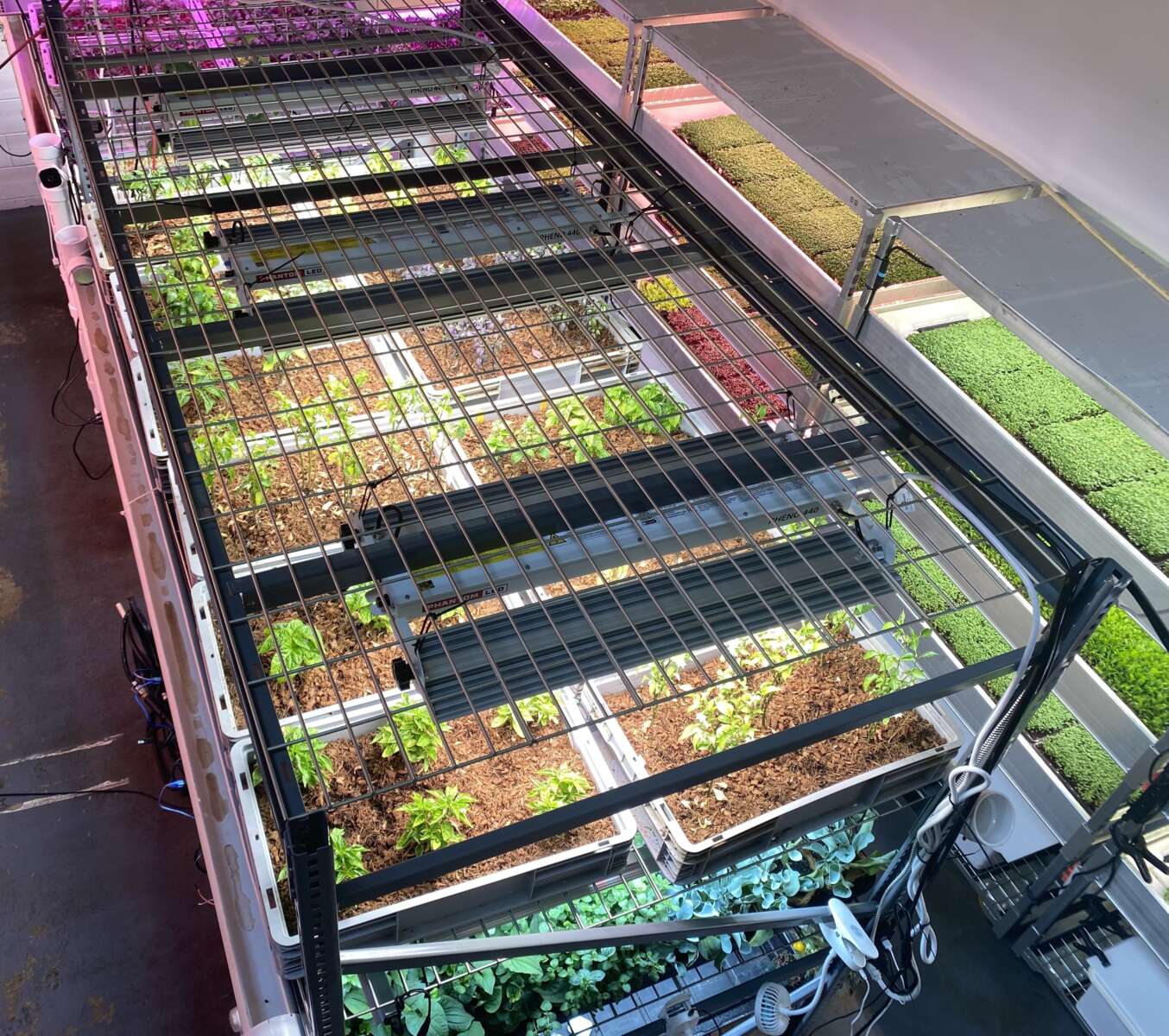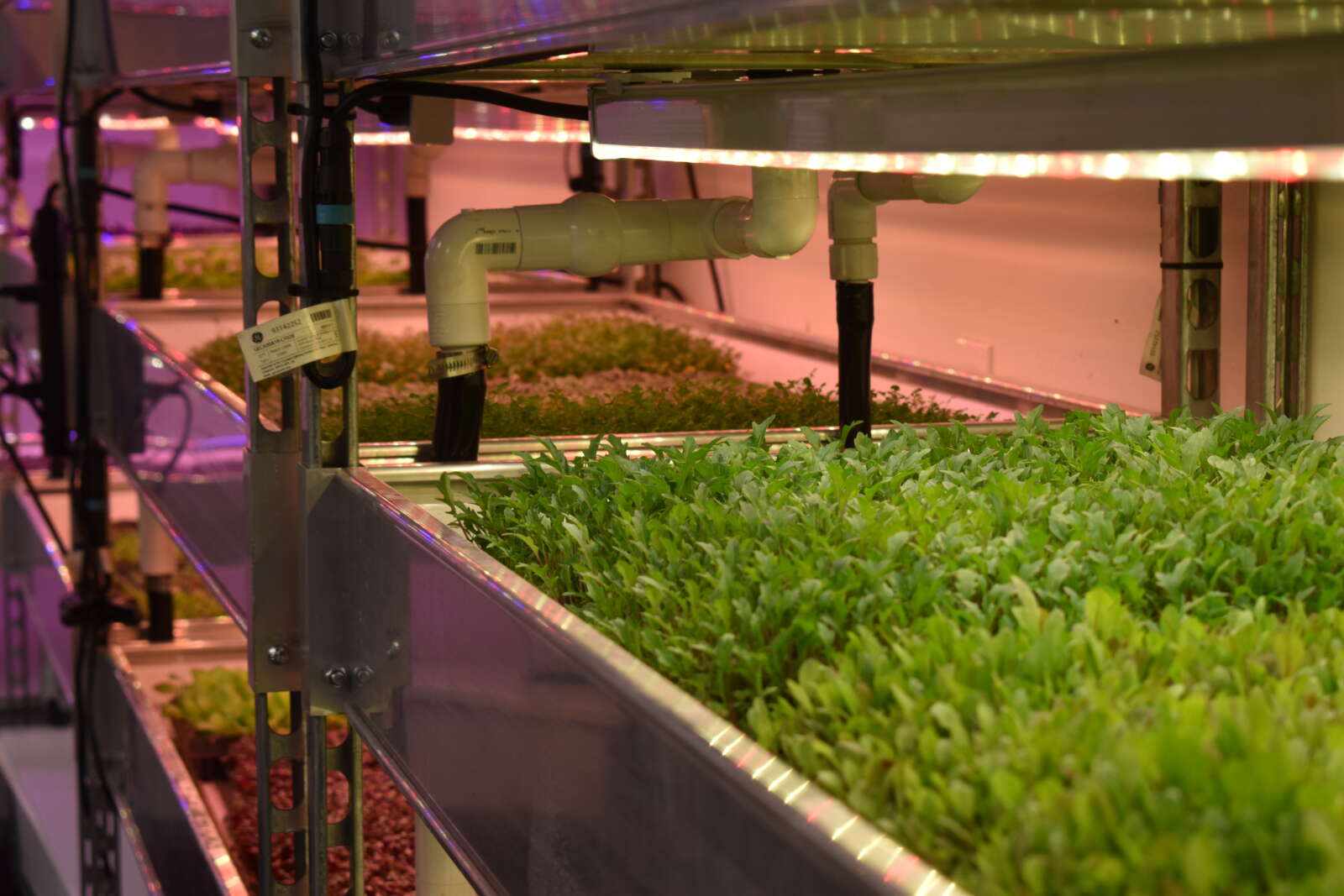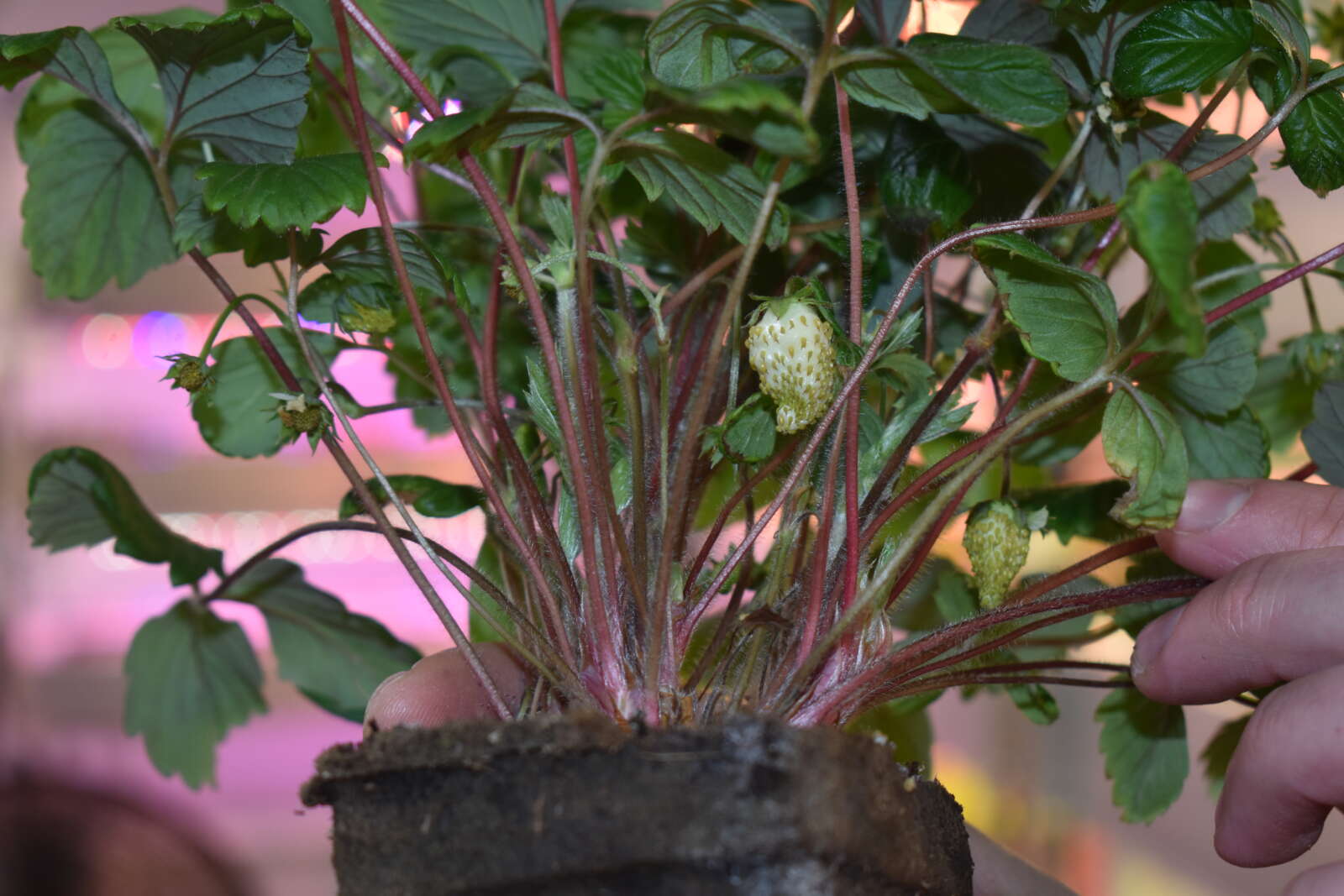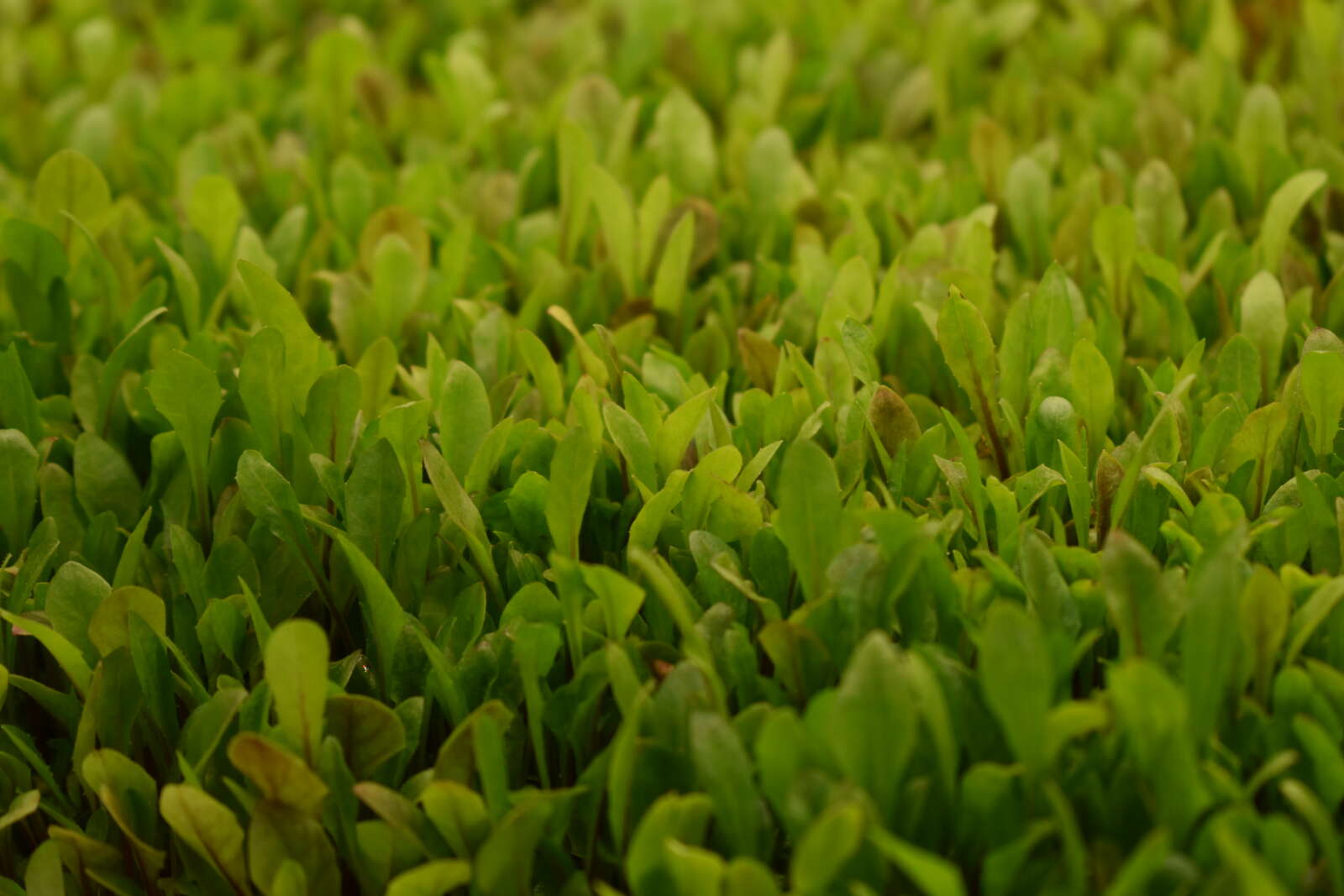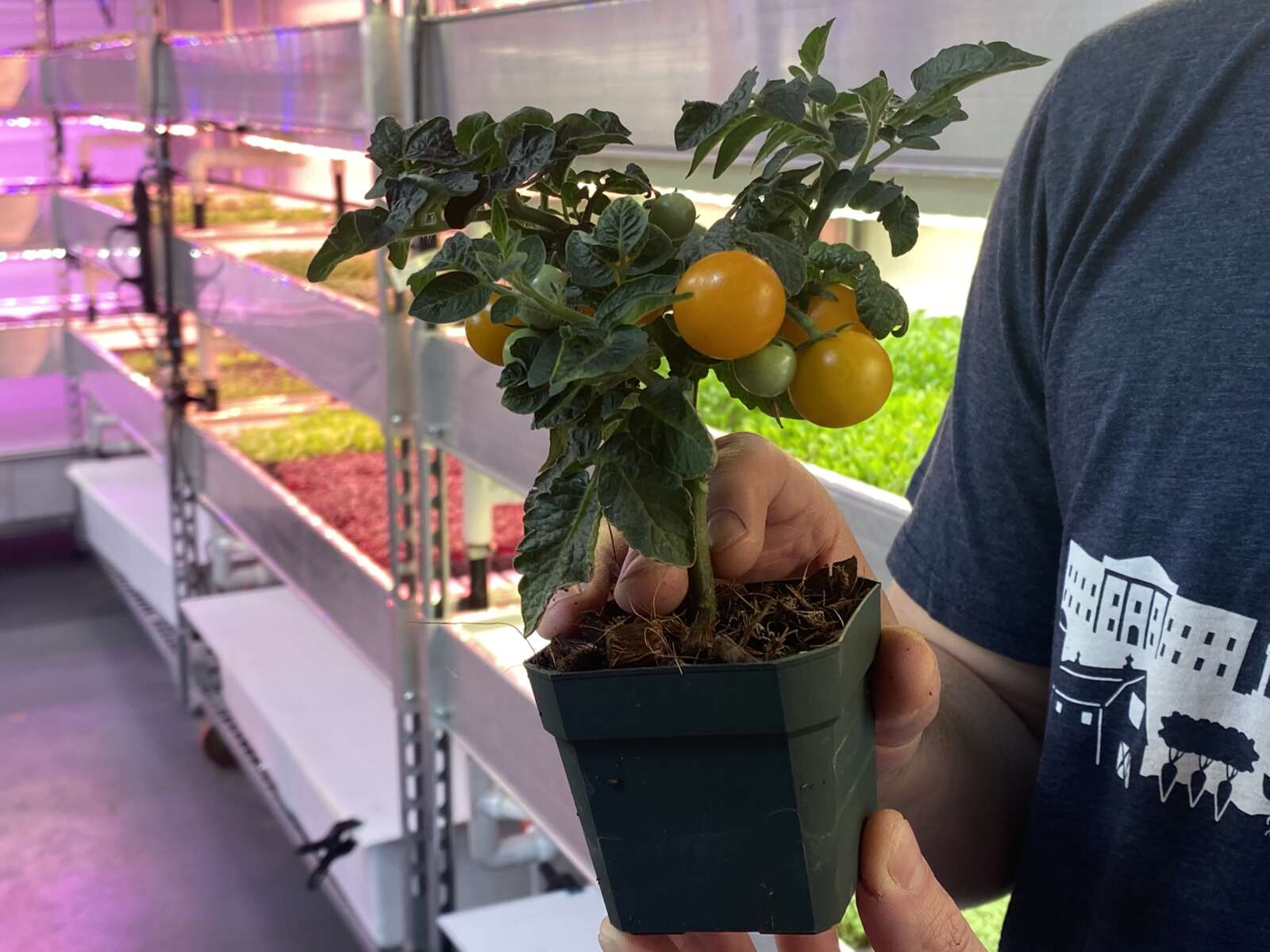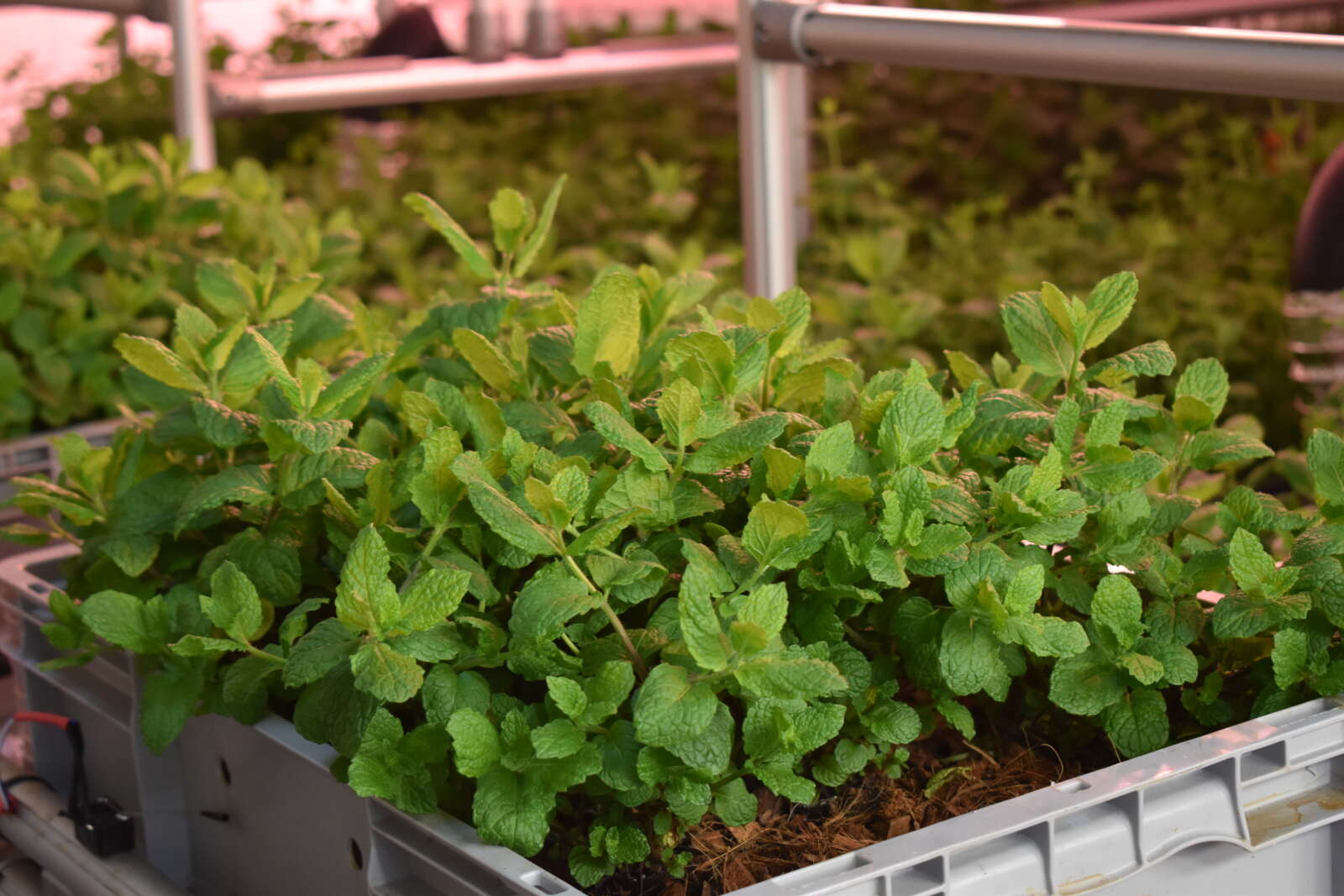(Updated, 1:50 p.m) A new indoor vertical organic farm has put down roots in Green Valley, looking to deliver Arlington-grown farm to table produce.
Inside of a nondescript warehouse on S. Oxford Street near the Shirlington Dog Park, Area 2 Farms is growing — both produce and as a company. Racks of green-leafed, brightly-lit veggies are stacked on top of each other. Water pipes twist between the planters. The smell of soil permeates the space.
Some of what is being grown is familiar to the average supermarket-goer, like carrots, arugula, and tomatoes. Others not so much.
Co-founder Tyler Baras hands over a green leaf with a warning. It’s fish mint, he says, and tastes exactly what it sounds like it would. He’s right.
There are also buzz buttons, the inside of a flower that tastes like a cucumber with honey, and foliage that’s reminiscent of Luxembourg cheese.
The aim of this community-supported indoor urban farm in Arlington isn’t just to deliver freshly-picked produce to customers within a ten mile radius — Arlington, Alexandria, parts of Fairfax County, and D.C. — on a weekly basis. It’s also about fostering a relationship between the community and the farmer.
“People want to know where they are getting their food from,” Baras tells ARLnow. “People can come get a tour of the farm, meet me, and have a relationship.”
Baras and his co-founders aren’t the only ones that think a local indoor vertical organic farm is a good idea. Today, Arlington County and the state announced a pair of $40,000 grants that will provide Area 2 Farms with for a total of $80,000 in public funding.
“It is always exciting when successful entrepreneurs like those behind Area 2 Farms bring their ideas and technologies to help grow Virginia’s largest and oldest industry, agriculture,” said Va’s Secretary of Agriculture and Forestry at the press conference this morning revealing the grant. “This project adds to the region’s growing cluster of innovative, indoor urban agricultural operations and shows us how the Commonwealth’s oldest industry will remain a vital and growing part of the Virginia economy going forward.”
Baras has spent his career being an indoor vertical farmer and has written a number of books about it. His methods are a combination of hydroponics and traditional farming, including using soil, worms, and compost.
It was about a year ago that he moved to Clarendon and realized that Arlington could be a perfect fit to set up an indoor urban farm.
“[Arlingtonians] love their food. So, everyone’s been so supportive,” he says. “I’ve seen vertical farms do really well when they act like traditional farms — when they do farm stands and build relationships with customers.”
The plan is to start slow and let the farm take root in the neighborhood. Area 2 Farms only moved into the warehouse on S. Oxford Street in October, so it’s still growing.
Next week is Area 2 Farms’ first big harvest. It will begin sending out boxes of their produce to the few dozen customers that have signed up so far later that week. At this point, that’s mostly friends and family, but new customers are welcome to sign up for boxes through the company’s website.
The farm also plans to be at the Old Town Farmers Market in Alexandria next weekend, with the hope of expanding this summer into Arlington farmers markets while starting to offer tours of its farm.
Baras wants to make sure Area 2 Farms does this right.
“When you’re local, your reputation really matters,” he says. “We want to deliver something that’s expected and some that’s unexpected.”
He points out that there are a lot of things that Area 2 Farms can grow and provide to customers that are not part of the normal supply chain, either due to the short shelf life or lack of demand.
The boxes will include the familiar salad mixes and root vegetables (think carrots, beets, radishes), but also a few surprises. That could be a purple shamrock, wasabi arugula, alpine strawberries.
“When they’re ready, they have the consistency of Play-Doh,” Baras said of the strawberries. “When you pick them, you pretty much squish them already. So, you can’t really harvest and sell them in the store because there’s really only a two day shelf life.”
Along with the produce, the plan is to include recipe cards and suggestions about how to use the more unusual items.
He doesn’t foresee his method of farming replacing traditional outdoor farms, but rather adding to the market. Area 2 Farms uniquely provides produce harvested literally hours before landing in one’s kitchen.
“I think it gets people more excited about their food,” Baras says. “Especially, in the last couple of years with people being big about cooking at home… we are adding that extra level.”



